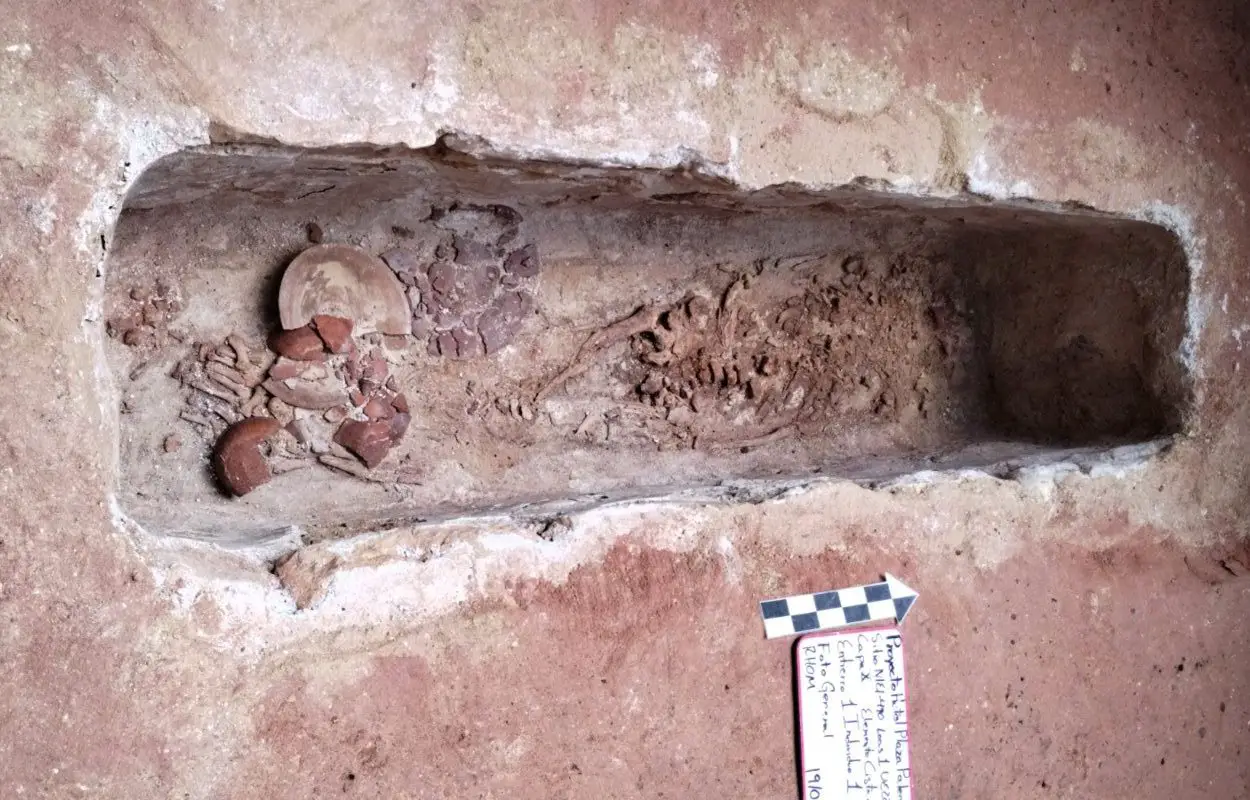A tomb with funerary offerings has been uncovered during the construction of the Tren Maya Hotel, in Palenque, Mexico.
Archaeologists from the National Institute of Anthropology and History (INAH) conducted rescue excavations following the discovery, revealing skeletal remains associated with the Maya city of Palenque.
Palenque, also known as Lakamha in the Itza Language (meaning “Flat-Place-River”), is located near the Usumacinta River in the Mexican state of Chiapas.
The city dates from 226 BC to AD 799, with most of the major construction works representing a rebuilding effort in response to attacks by the city of Calakmul and its client states in AD 599 and AD 611.
The population declined during the 8th century AD, instead becoming an agricultural population that led to the abandonment of the city zone. By 1520 following the Spanish conquest, contemporary Spanish accounts record the entire region being sparsely populated.
Excavations uncovered a stone lined funerary space sealed with limestone slabs, in which the researchers found the remains of a high-status individual who likely lived in the periphery of Palenque in a small settlement.
The burial is located at a depth of four metres, and also contained ceramic vessels and beads deposited as funerary offerings.
“The individual was placed face up with his legs extended and his head facing north,” said Diego Prieto Hernández from INAH.
The discovery was announced in a press conference reporting on the progress of the Program for the Improvement of Archaeological Zones (Promeza) in Palenque, Moral-Reforma and El Tigre, the three heritage sites that are served within Section 1 of the Mayan Train Project.
Header Image Credit : INAH





